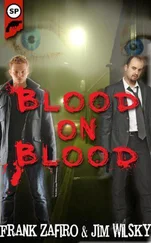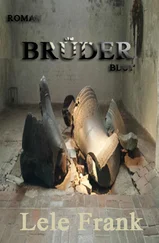Frank Tallis - Vienna Blood
Здесь есть возможность читать онлайн «Frank Tallis - Vienna Blood» весь текст электронной книги совершенно бесплатно (целиком полную версию без сокращений). В некоторых случаях можно слушать аудио, скачать через торрент в формате fb2 и присутствует краткое содержание. Жанр: Исторический детектив, на английском языке. Описание произведения, (предисловие) а так же отзывы посетителей доступны на портале библиотеки ЛибКат.
- Название:Vienna Blood
- Автор:
- Жанр:
- Год:неизвестен
- ISBN:нет данных
- Рейтинг книги:3 / 5. Голосов: 1
-
Избранное:Добавить в избранное
- Отзывы:
-
Ваша оценка:
- 60
- 1
- 2
- 3
- 4
- 5
Vienna Blood: краткое содержание, описание и аннотация
Предлагаем к чтению аннотацию, описание, краткое содержание или предисловие (зависит от того, что написал сам автор книги «Vienna Blood»). Если вы не нашли необходимую информацию о книге — напишите в комментариях, мы постараемся отыскать её.
Vienna Blood — читать онлайн бесплатно полную книгу (весь текст) целиком
Ниже представлен текст книги, разбитый по страницам. Система сохранения места последней прочитанной страницы, позволяет с удобством читать онлайн бесплатно книгу «Vienna Blood», без необходимости каждый раз заново искать на чём Вы остановились. Поставьте закладку, и сможете в любой момент перейти на страницу, на которой закончили чтение.
Интервал:
Закладка:
“Did you ask your patron to use her influence?”
“Yes, of course-but alas, her efforts were wasted.”
“What's this?” asked Aschenbrandt, emerging from a fog of self-satisfaction.
“The district chairman has been pestering the mayor for a Mozart memorial to be erected just outside this building.”
“Might I ask,” said Olbricht, “the name of the artist who was awarded the commission… in the end?”
Hannisch looked into Olbricht's widely spaced eyes. There was something quite pitiful about his attempt to feign indifference.
“I'm really not sure, my dear fellow,” Hannisch replied.
A servant approached and refilled their glasses, while another offered more pieces of crystallized fruit. Hannisch picked up two cubes and immediately pressed one between his lips.
“What will it look like? This memorial?” asked Aschenbrandt.
“Mmm…” Hannisch seemed to be distracted by the taste of the sweetmeat-he was clearly engaged in the important task of determining its flavor. “I beg your pardon?”
“What form will the memorial take?” said Aschenbrandt, a hint of tetchiness creeping into his voice. “What will it be?”
Hannisch swallowed.
“Well, as far as I know, it will be a fountain, decorated with bronzes that represent a scene from The Magic Flute.”
“Mozart! Mozart!” Aschenbrandt growled. “Why not Beethoven? Or Richard Wagner, for heaven's sake! We already have a Mozart monument!”
“I couldn't agree more,” said Olbricht. “And why have they chosen to commemorate the most ridiculous of his operas?”
“It is little more than an entertainment for children…,” continued Aschenbrandt.
“Yes, yes-he is a superficial composer in many respects,” Hannisch continued. “However, he is becoming increasingly popular.”
“Well,” Aschenbrandt interjected, “I blame Mahler. He's always scheduling Mozart. In fact, a new production of The Magic Flute is planned for this season.”
The three men looked glum at the prospect.
“The sooner we're rid of him the better,” muttered Olbricht.
Hannisch bit into the second cube of fruit. “They say it is a Masonic opera-The Magic Flute-full of their secrets.”
“Quite so,” said Aschenbrandt. “Mozart is supposed to have raised the ire of his Masonic brothers by incorporating many of their treasured symbols in the text and set. It was regarded as a betrayal of trust, and could have cost him his life.”
“Mmm…” Hannisch's reply was delayed by a protracted episode of mastication. “Mozart may have fallen foul of his fellow Masons on account of his indiscretion, but surely it was the composer's intention to celebrate their doctrine in The Magic Flute?”
Before Aschenbrandt could answer, Olbricht muttered, “He's probably one of them.”
Hannisch and Aschenbrandt turned to look at their companion.
“The district chairman,” Olbricht continued. “He's probably one of them-a Mason. And Director Mahler, too.”
“Well,” said Aschenbrandt. “That wouldn't surprise me in the least.”
11
BEFORE LEAVING HIS OFFICE the previous evening, Rheinhardt had received a visit from Commissioner Brugel's adjutant. The self-important underling had handed him an envelope and proclaimed, “The commissioner will see you tomorrow morning.” It was not necessary to reinforce Brugel's summons with a command (Rheinhardt knew better than to neglect a communication from the commissioner), but the adjutant was typical of that class of men who, when given a modicum of authority, never fail to abuse it. Although the note was rendered in an ornate Gothic script, it had the modern virtue of brevity, having been composed in the unmannered style of a telegram: Spittelberg. Progress report. My office. Seven o'clock tomorrow morning. Brugel.
Rheinhardt sat patiently while the commissioner examined photographs of the Spittelberg massacre. Brugel didn't look horrified, or stunned-merely irritated. Occasionally he grunted in a curmudgeonly fashion. A considerable period of time elapsed before he finally raised his blockish head and asked, “What did the soldiers say?”
“I beg your pardon?” Rheinhardt responded.
“The soldiers!” barked Brugel. “Lipos?ak, Alderhorst, Hefner…”
“You are referring to the promissory notes?”
“Of course.”
“I haven't discovered their whereabouts yet.”
“Why? Is there a problem? Is their posting classified?”
“No, sir…” Rheinhardt's collar suddenly felt tight. “I have not, as yet, had an opportunity to visit the barracks. I intend to-”
“Rheinhardt,” Brugel interrupted, “today is Friday. This atrocity took place on Tuesday. What on earth have you been doing?”
“With respect, sir, if I might explain…” Rheinhardt took a deep breath. “Professor Mathias was indisposed on Tuesday. He suffers from a respiratory illness and the cold weather affects his lungs. The good professor-although an inspired pathologist-works slowly, and it was not until late Wednesday evening that the fourth autopsy was completed. On Thursday I worked on my preliminary report, and later in the day I consulted Herr Doctor Liebermann. I have arranged to visit the barracks this morning.”
Brugel did not look impressed. “You didn't have to wait for the autopsy results. You could have contacted the military police straight away.”
“Indeed, but-”
Brugel slapped his hand on the desk.
“Spare me your excuses, Rheinhardt!” The commissioner grumbled something under his breath and began to fulminate again. “Two days, Rheinhardt. You have wasted two days. The brothel is a short walk from the barracks, three of the women were clearly killed with swords, and in Madam Borek's bureau you found the names of eight soldiers who owed her money. Isn't it obvious what you should have done?”
Rheinhardt, not wishing to lock horns with the commissioner, conceded the point. “Yes, sir. It is obvious. It was a mistake to wait for the autopsy results.”
In fact, Rheinhardt thought nothing of the sort. He always preferred to initiate an investigation after consulting Professor Mathias. Moreover, he was well aware that had he not completed a preliminary report by Thursday afternoon, the commissioner would have been equally disgruntled. Even so, he was sufficiently acquainted with Brugel's explosive temper to forgo the modest and perilous pleasure of drawing such arguments to the commissioner's attention.
Brugel opened a buff file and removed the floor plan of Madam Borek's brothel. He unfolded the stiff paper and smoothed it out on his desktop, tutting over some minor aspect of its detail. Then, examining Rheinhardt's preliminary report, he proceeded to question the detective minutely. Brugel's inquisition was not intellectually demanding, but his relentless, bludgeoning style of inquiry made Rheinhardt's head throb.
There was a moment of reprieve when the adjutant arrived with the commissioner's tea. Rheinhardt ruefully observed that the beverage was accompanied by a small pile of Manner Schnitten-wafers filled with hazelnut cream-a new type of biscuit for which the inspector had developed a particular fondness. The commissioner managed to consume all of them without showing any signs of enjoyment, a fact, thought Rheinhardt, that revealed even more about Brugel's deficiencies as a human being than did his habitual rudeness.
The commissioner sipped his tea and dabbed his muttonchop whiskers with a napkin.
“Nothing in your report about Liebermann,” he grumbled.
Rheinhardt explained that this was because he had only consulted the young psychiatrist after submitting the preliminary report. He set about summarizing-as best as he could-his friend's psychological portrait of the perpetrator. But before he had finished, Brugel was impatiently waving his hand in the air. “Yes, yes, I see what he's getting at. But it's all speculation-isn't it?”
Читать дальшеИнтервал:
Закладка:
Похожие книги на «Vienna Blood»
Представляем Вашему вниманию похожие книги на «Vienna Blood» списком для выбора. Мы отобрали схожую по названию и смыслу литературу в надежде предоставить читателям больше вариантов отыскать новые, интересные, ещё непрочитанные произведения.
Обсуждение, отзывы о книге «Vienna Blood» и просто собственные мнения читателей. Оставьте ваши комментарии, напишите, что Вы думаете о произведении, его смысле или главных героях. Укажите что конкретно понравилось, а что нет, и почему Вы так считаете.












